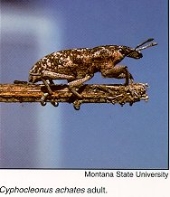








Brenda
Bloom where you are planted.
http://restfultrailsfoodforestgarden.blogspot.com/




land and liberty at s.w.o.m.p.
www. swompenglish.wordpress.com








stalk_of_fennel wrote:
i posted an ad on craigslist offering to buy spoiled hay. i got a lot of offers and quit a few people asking me to just come haul it off and i can have it for free. the fella was nice enough to use his skid loader to drop a 1/4 of a round bail into the back of my pickup.
seeds im not to worried about. i put the mulch on thick and nothing sprouts through 8 inches of hay. what i AM worried about is broad leaf herbicides used on the hay. i hope that buying old, spoiled hay much of these have dissipated. ive read horror stories about peoples crops being ruined by produces like Grazon with a 533 day half life... arrrrggg...








stalk_of_fennel wrote:
what i AM worried about is broad leaf herbicides used on the hay... like Grazon with a 533 day half life... arrrrggg...
how to convert a chest freezer to a fridge
Where liberty dwells, there is my country. -- Benjamin Franklin




hozomeen wrote:
I can say for certain that hay grown for cattle is almost always plowed, planted, and forgotten about until harvest.




Joop Corbin - swomp wrote:
Since we once got a bunch of hay with seeds we refrain from it altogether... it will probably take us years of fighting back the grasses that are now constantly coming up everywhere...
...in my experience a mulch that is mainly applied for soil protection works best with slow composing material like leaf litter, straw or if available reeds. .
http://www.greenshireecofarms.com
Zone 5a in Central Ontario, Canada




Travis Philp wrote:
Even straw can't be guaranteed seed free. I've seen old square bales of straw with grass seed sprouting on nearly the entire surface of the bale.
"the qualities of these bacteria, like the heat of the sun, electricity, or the qualities of metals, are part of the storehouse of knowledge of all men. They are manifestations of the laws of nature, free to all men and reserved exclusively to none." SCOTUS, Funk Bros. Seed Co. v. Kale Inoculant Co.




Joel Hollingsworth wrote:
*nods*
I still have wheat coming up from a bale I got for free two years ago. Threshing isn't perfect.




"the qualities of these bacteria, like the heat of the sun, electricity, or the qualities of metals, are part of the storehouse of knowledge of all men. They are manifestations of the laws of nature, free to all men and reserved exclusively to none." SCOTUS, Funk Bros. Seed Co. v. Kale Inoculant Co.




stalk_of_fennel wrote:
How about for sheep?




Jeff Davis
Less is more...




Brenda
Bloom where you are planted.
http://restfultrailsfoodforestgarden.blogspot.com/








Pam wrote:
I don't know exactly what I should do with the stuff that's left..normally I leave it to compost into the field but if it has some sort of weird chemical in it that seems like a poor idea.
Jeff Davis
Less is more...





http://www.greenshireecofarms.com
Zone 5a in Central Ontario, Canada




Travis Philp wrote:
Pam, what about feeding it to some red wiggler worms? They'll accumulate the pesticide in their bodies and crap out a much cleaner and richer substance for you. Just be sure to sift the worm castings carefully so that no worms get into the finished product.

































Aljaz Plankl wrote:Why not growing your own straw or hay mulch? You don't need much land for this! And many of you, as i can see, are having just enough land.
Non-organic straw is bad for your soil, for your veggies and for you. That's the most simple answer i can give you. This stuff is so heavily sprayed it's unbelievable. It takes a while to brake down, that's for sure, but all the bad things that are in the straw (a lot) are leaching into the soil.
You don't need to mulch vegetable garden from outside source. Everything can be produced on garden itself. You just need to become a friend with weeds and winter cover crop, both can be used for chop and drop. Also trying to leave as much vegetable waste in a garden. And not pulling vegetable roots out.








 1
1





|
See where your hand is? Not there. It's next to this tiny ad:
Rocket mass heaters in greenhouses can be tricky - these plans make them easy:
Wet Tolerant Rocket Mass Heater in a Greenhouse Plans
|





